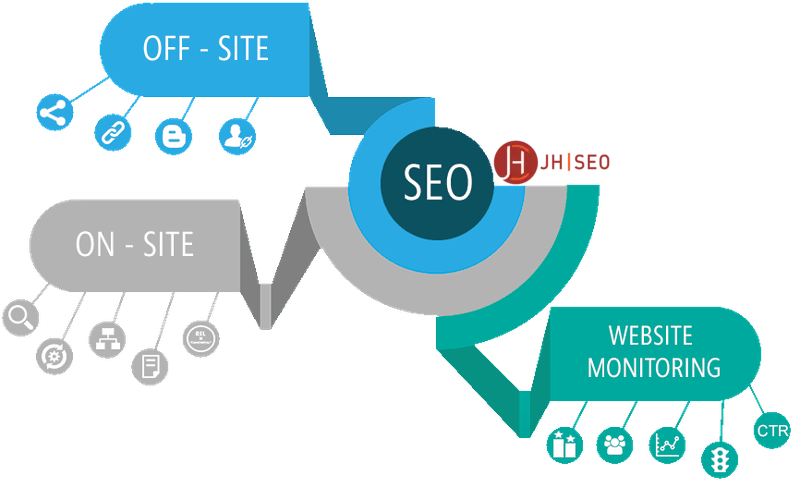SEO is vital for small businesses, offering a powerful means to enhance online visibility and attract new customers. Businesses can use SEO to improve their website’s ranking on SERPs, thereby increasing the likelihood of drawing in potential customers searching for relevant products or services. This visibility boost is especially crucial for small business SEO operating in competitive markets where establishing a strong digital presence can make a significant difference in attracting and retaining customers.
SEO employs various strategies to enhance a website’s search engine ranking, including keyword research, content optimization, and technical enhancements like improving site speed and mobile compatibility. These efforts not only boost visibility in search results but also enhance user experience by improving site navigation and interaction. By conforming to the algorithms of search engines such as Google, small enterprises can efficiently reach their intended audience and boost organic traffic, leading to growth and profitability for local businesses.
Implementing effective SEO practices offers several benefits to small businesses. Beyond enhancing visibility and attracting new customers, SEO helps build brand credibility and authority within their industry. A well-optimized website that consistently appears in relevant search results can instill confidence in potential customers, leading to higher conversion rates and repeat business. Furthermore, SEO represents a cost-efficient marketing approach when contrasted with traditional methods, rendering it viable for small businesses operating within constrained marketing budgets. By focusing on SEO, small businesses can achieve sustainable growth and compete effectively in their respective markets.
Search Engines
Search engines are pivotal in the field of SEO as they serve as the main entry point for users searching for information, products, or services online. These platforms utilize sophisticated algorithms to index and prioritize web pages based on their relevance and authority, influencing their placement on search engine results pages (SERPs). Familiarity with search engine operations is essential for optimizing websites to improve visibility and attract organic traffic.
Among the most prominent search engines, Google dominates the market, dominating the landscape with its sophisticated algorithms and user-centric approach to organic search. Bing and Yahoo, while less dominant, also play significant roles, particularly in specific regions or demographics. Each search engine has its unique ranking factors and algorithms, small businesses must tailor their SEO strategies to maximize visibility across platforms.
In the competitive digital landscape, grasping search engine algorithms is pivotal for small businesses aiming to improve their online presence. Algorithms determine how content is crawled, indexed, and ranked, influencing where a website appears in search results. Factors such as relevance, quality of content, user experience, and authoritative backlinks all contribute to rankings. Keeping abreast of algorithm updates and trends through tools like Google Analytics helps small business owners and SEO practitioners refine strategies and maintain a leading position in search engine rankings.
Search Engine Optimization (SEO)
SEO, or Search Engine Optimization, aims to improve a website’s visibility on search engines such as Google, Bing, and Yahoo, ultimately increasing organic traffic. Essential elements of SEO include on-page optimization, which centers on refining individual web pages through the strategic use of keywords, meta tags, headers, and alt attributes to increase their search engine appeal. Off-page SEO, meanwhile, focuses on activities like link building and social media interactions to drive traffic, enhance the website’s authority, and bolster its online reputation.
SEO holds immense importance for small businesses, enabling them to effectively compete in the digital realm. Local SEO, especially, aids small businesses in drawing customers from their local vicinity by optimizing their online profiles for location-specific searches. Familiarity with search engine algorithms is crucial as it directs SEO tactics and enables businesses to adjust to shifts in how search engines rank websites. Tools like Google Analytics offer valuable data on website traffic, user engagement, and the efficacy of SEO endeavors, empowering small businesses to fine-tune their approaches and enhance their visibility online.
Local SEO
Local SEO pertains to a specialized facet of search engine optimization aimed at enhancing a business’s presence in local search engine outcomes. This aspect is particularly vital for small businesses targeting customers within specific geographic regions, as it facilitates their visibility when users search for products or services nearby. Effective local SEO strategies encompass the utilization of location-specific keywords, the establishment of accurate Google My Business profiles detailing local business information, and optimization for local citations. By implementing these tactics, small businesses can build credibility and authority within their local community, thereby increasing their likelihood of appearing prominently in local search queries.
Google My Business (GMB) holds significant importance in local SEO by enabling businesses to oversee their online presence across Google’s array of platforms, such as Google Maps and local search listings. Enhancing GMB profiles with pertinent local keywords, operating hours, and customer feedback can notably elevate visibility in local search outcomes. Furthermore, cultivating favorable customer reviews and promptly addressing them can bolster a business’s standing and draw in more local clientele. Local citations from reputable directories and websites further validate a business’s credibility and authority, contributing to higher rankings in local search engine results pages (SERPs).
Google Search
Google Search stands out as the leading search engine globally, commanding a significant share of the search market. For small businesses, optimizing their online presence for Google Search is paramount due to its widespread usage and influence on local searches. Google’s search algorithm undergoes constant evolution to deliver users the most pertinent and top-quality outcomes. Staying abreast of these updates is vital for small business SEO tactics since they can influence website rankings and prominence in search engine results pages (SERPs). Keeping abreast of algorithm changes helps small businesses adjust their SEO tactics to maintain or improve their rankings effectively.
To rank well on Google, small businesses should focus on several key factors. Quality content remains fundamental, as Google prioritizes websites that provide valuable and authoritative information. Content should be tailored to include relevant target keywords naturally without keyword stuffing, ensuring it resonates with both users and search engine crawlers. Moreover, it is crucial to optimize websites for mobile devices because Google favors mobile-friendly sites in its search rankings. Providing a smooth user experience, which includes quick loading speeds and easy navigation, also plays a significant role in improving rankings and search traffic on Google. Adhering to these guidelines allows small businesses to boost their visibility in Google Search results, thereby increasing organic traffic and attracting potential customers more efficiently.
SEO Strategies for Small Businesses
Developing successful SEO strategies customized for small businesses demands a thoughtful approach that takes into account their distinct requirements and available resources. Small businesses often operate with limited budgets and manpower compared to larger enterprises, necessitating strategies that are both efficient and cost-effective. This includes emphasizing activities that provide the greatest return on investment (ROI), such as concentrating on local SEO to attract nearby customers seeking products or services in their vicinity. By optimizing for local search terms and utilizing platforms like Google My Business, small businesses can improve their presence in local search results, thereby boosting foot traffic and online inquiries.
Setting realistic goals is crucial for small business SEO success. Rather than aiming for broad, highly competitive keywords, focusing on more targeted long-tail keywords can yield better results. These keywords are less competitive and often reflect specific user intent, making them more likely to convert into leads or sales. Tracking metrics like organic traffic growth, keyword shifts, and conversion rates is vital to gauge the effectiveness of your SEO strategies. Employing tools like Google Analytics offers valuable insights into user interactions and website performance, empowering small businesses to consistently improve their SEO strategies.
Integrating SEO with broader digital marketing efforts ensures a cohesive approach to online visibility and customer acquisition. SEO works alongside social media marketing, content marketing, and paid advertising. When integrated with these strategies, SEO enables small businesses to expand their online presence and connect with a diverse audience across various platforms. This integrated approach not only enhances brand awareness but also drives organic traffic and improves search engine rankings over time. By tailoring SEO strategies to meet their unique requirements and meticulously monitoring performance, small businesses can fully harness their online growth potential and remain competitive within their markets.
Discover vital SEO strategies crafted for small business SEO to boost online visibility and draw in more customers. Start with a discussion on the importance of SEO in the current digital era, focusing on the role of search engines like Google and the pivotal role of local SEO in connecting with nearby consumers. Highlight actionable tactics such as optimizing for local search terms, effectively using Google My Business, and managing online reviews to establish local trust and credibility. Cover the importance of setting realistic SEO goals, tracking essential metrics like organic traffic and keyword rankings, and integrating SEO with wider digital marketing initiatives to amplify impact across multiple platforms. Adopt these tailored approaches to improve online presence, drive meaningful traffic, and achieve sustainable growth in competitive markets.



































































































































































































































